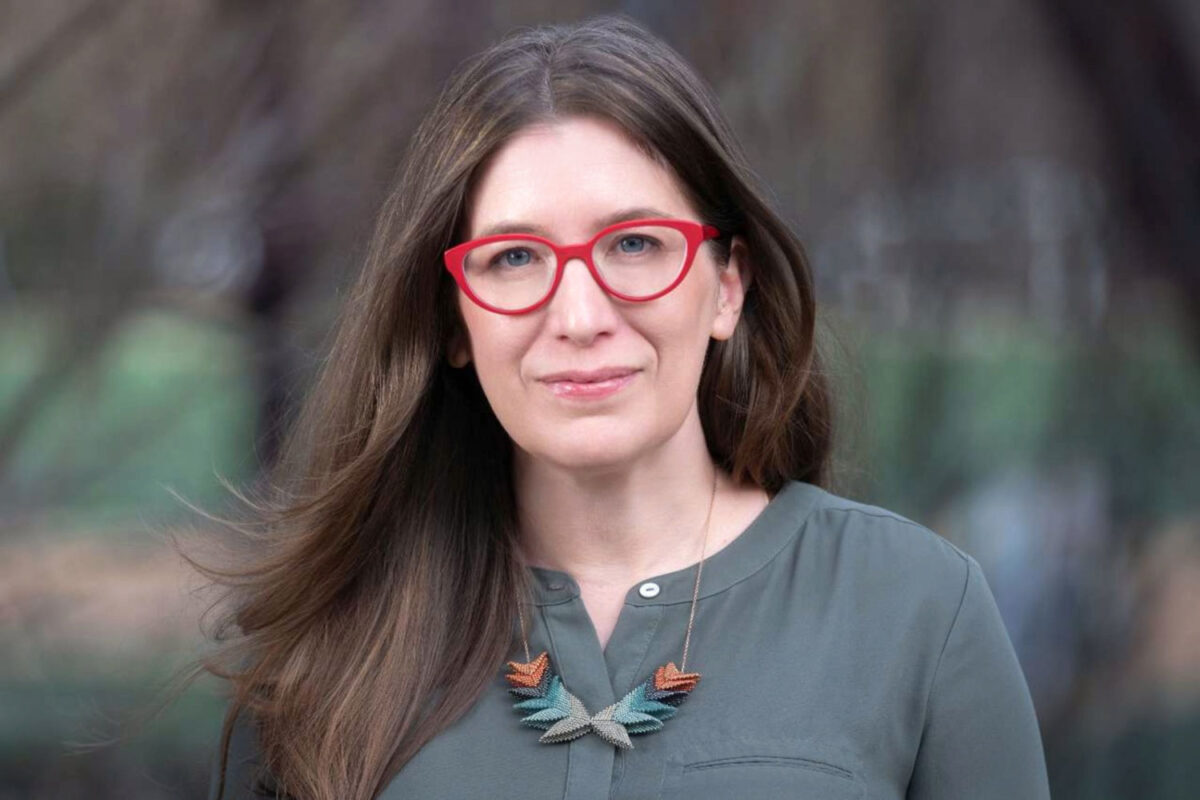Dr. Sophie Leroy, a professor in the University of Washington Bothell’s School of Business, has dedicated the past 20 years of her professional life to the study of interruptions — why people can find it difficult to focus their attention in the workplace and how they can gain focus.
“I first became interested in this when I was working as a consultant. I tend to easily focus my attention and be present, but as I started to manage more and more projects concurrently, and had to constantly switch between them, it became harder to find that focus,” Leroy said.
She recalls an example from an important meeting with her then-company’s CEO. “At the end of the meeting, I told my team that we had forgotten to ask this one question, and they looked at me funny and said, ‘No, we did, we asked it,’” Leroy said. “I realized then that my brain had, for a few minutes, been thinking about another project entirely.
“You could see on my notepad that I had written a little to-do list with items from my other projects and that my brain kept going to those in parallel to the current meeting.”
In this modern era when most employees are expected to be able to switch between several work activities, Leroy said, looking into what causes these kinds of interruptions is a critical area of new research.
“Being able to focus has a direct impact on performance. It influences how we make decisions, the quality of our work and our productivity,” she said. “But at the time I became interested in it, research on this topic was extremely limited.”
Being able to focus has a direct impact on performance. It influences how we make decisions, the quality of our work and our productivity.
Dr. Sophie Leroy, professor, School of Business
Determined despite the doubters
In recognition of her work, Leroy has been named the 2024 recipient of UW Bothell’s Distinguished Research, Scholarship & Creative Activity award, which is given each year to a member of the faculty to recognize scholarly or creative achievements and high standards of excellence.
To this day, Leroy can still recall the first review she received on a paper about the study of interruptions back in the early 2000s when many doubted the relevance of studying such a phenomenon. The reviewers asked, “Why are you studying this? Who cares about interruptions?”
Her response to them was, “Because I know it is real, and it affects many people. I experienced it myself and had witnessed many of my co-workers struggle with finding focus between interruptions and switching tasks. I believed in the importance of the topic, even if others didn’t see it.
“It wasn’t easy,” she said, “but I am glad I trusted my intuition and didn’t get discouraged.”
If Leroy had let those reviewers dissuade her, she would never have gone on to establish the study of interruptions, a new research area within the field of organizational behavior. Because of her persistence, she has also developed and tested foundational theories and frameworks that guided related research forward.
“The part that has been most humbling and motivating is that many people — nurses, teachers, computer scientists, people in a diverse mix of occupations — have contacted me over the years and shared how they can relate to my research and have found it extremely helpful.”
The reason for residue
Leroy conducted one of her first studies on interruptions in 2009. Her goal was to understand how switching tasks affects people’s ability to be fully present in their work and perform at their full potential.
“The findings revealed that the act of transitioning between tasks has implications on how people engage in a subsequent task,” she explained. “Switching attention tends to be difficult for people and subsequent task performance easily suffers.”
Leroy’s research revealed that, in most instances, people’s attention remains focused on the interrupted task and does not fully switch to the interrupting demand — a phenomenon she termed “attention residue.”
As she explains in a 2020 article in the Harvard Business Review, “This happens because we have a fundamental need for completion that makes switching our attention quite difficult for the brain to execute; we hold on to incomplete work instead of putting it aside even when a switch of focus is necessary. Consequently, we perform interrupting tasks with only part of our cognitive resources and risk performing them poorly.”
This new research sparked new questions, and Leroy began to wonder if people are always at risk of experiencing attention residue when interrupted — or if there is perhaps something that can be done to prevent it, thus minimizing the risk of lower performance on the interrupting tasks.
The search for simple solutions
In an effort to find out, Leroy and Dr. Theresa M. Glomb at the University of Minnesota conducted a study that has since been published in Organization Science. Leroy and Glomb split research participants into two different groups. Both groups were given a task and were subsequently interrupted and instructed to start on an entirely different task. While one group was told they would have plenty of time to finish their original task later, the other group was told that they would not have much time at all.
“Participants who thought they would experience time pressure when they returned to the original task showed both high levels of attention residue and significant performance decrements on the second task (the interrupting task).”
As Leroy reported in a study titled “Tasks Interrupted,” the people in this second group did not process information carefully, did not notice errors and, when asked to make a decision based on recalled information, were less likely to identify the optimal solution.
“In contrast, the participants in the other group who had anticipated that they would have plenty of time to complete the interrupted task had less difficulty switching away from it, such that they did not experience attention residue and performed at higher levels on the interrupting demand.”
When ready to resume
Realizing that most employees work under time pressure and thus are at risk of experiencing attention residue, Leroy and Glomb set out to identify a way to reduce the phenomenon. They used the results of their studies to propose the Ready to Resume Plan, which is designed to help employees disengage from incomplete work and successfully move on to other tasks.
It’s as easy as this: When interrupted, write down where you were in a project and what you had planned to do next. “The simple act of briefly reflecting on and planning one’s return before switching attention helps employees cognitively set aside the interrupted task,” Leroy said. In effect, leaving that trail of breadcrumbs gives the brain control.
The plan also does not need to be long or elaborate. Less than a minute’s work may suffice for people to note where they left off, where to resume, what challenges are left and/or what actions to postpone but resume later.”
The researchers tested their plan in two additional studies: a field study and a laboratory study. “The results showed that people who are interrupted in their work but do the ready-to-resume plan, switch their attention more fully — and as a result make better decisions and recall more information on the interrupting task,” Leroy said. “It’s an improvement in performance, both in terms of the information they process and in the ability to make decisions with complex information.
“The ready-to-resume plan is one simple way to help when dealing with frequent interruptions. In doing so, we not only help our brain focus and perform better but we also benefit the person who interrupts because we will be more present in that interaction and our contribution will be of higher quality.”
Words of wisdom
Leroy’s work is frequently mentioned in the public media. She has been interviewed by journalists from the U.S., Australia, Canada, Germany, Pakistan, the U.K. and more, resulting in stories with the British Broadcasting Corporation, Thrive Global, GEO Germany, The Economist and The New York Times, among others.
Importantly, her research has also been published in top journals across several fields including organizational behavior, psychology, sociology and labor economics, and her papers are on the reading lists of doctoral seminars at universities across the globe. She has also served on the editorial boards of some of the most prestigious academic journals in her field.
“The publication process can be so hard,” Leroy said, looking back on her current body of research. “What has allowed me to persist is meeting people who could relate to what I was studying and who would find my findings helpful to managing a demanding and stressful work environment.”




